
The Lahore High Court on Friday issued directions to the federal government to recover “illegal profits” from the companies responsible for creating an “artificial” fuel crisis last year.
Announcing is verdict on petitions filed against the crisis, the court ordered the government to form a committee for the recovery of illegal profit made by the oil marketing companies (OMCs).
LHC Chief Justice Muhammad Qasim Khan had reserved the verdict after hearing the arguments of the parties.
In its detailed judgement, the court directed the federal government to take steps for the audit of the OMCs.
Read more: PTI govt to expand inquiry against OMCs
“If required, in the light of audit reports, a committee should be formed to examine the existing rules and regulations, and it might propose amendments or new regulations,” the LHC CJ wrote in the judgment.
The LHC chief justice directed the federal government to ensure that strategic storage was preserved in all eventualities.
He asked the federal government to ensure the release of the inquiry commission’s report on the “artificial” shortage of petroleum products and make arrangements for implementation of its recommendations.
The court asked the federal government to submit a compliance report within three months with regard to the steps taken by it.
Also read: OGRA imposes fine on OMCs
The government should examine the report of the Inquiry Commission about dissolution of the Oil and Gas Regulatory Authority (OGRA) through a high powered committee.
However, if such a committee concludes that the authority should remain intact, then the rules relating thereto must be revisited immediately and fresh rules and regulations should be framed.
The court also ordered that authorities should closely watch the working of OGRA and other autonomous bodies.
In case of any lapse, the officials concerned must be taken to task, it added.
The LHC chief justice noted that the oil and gas sector was pivotal and it had a strong impact on the economy of the country.
He noted that the petrol crisis developed over a period of time, and witnessed a relatively poor action from the authorities concerned.
After the decline in petrol prices and low consumption due to coronavirus in the start of 2020, the chief justice observed that the wheat harvest was just round the corner when local refineries started to close down for limited off-take by the OMCs.
"It was quite clear by the end of March that OMCs were not maintaining mandatory stocks for the 20 days' consumption cover as per the rules and licence-conditions. Unfortunately, even the strategic reserves had already been compromised. The supply chain disruption was nationwide and affected all major cities and towns in Punjab, Balochistan, Azad Jammu and Kashmir, as well as Gilgit-Baltistan,” he regretted.
The LHC CJ remarked that during this period, OGRA, the petroleum division and the oil industry were making “friendly communications” limited to file work.
“It becomes evident through perusal of the available material that despite foreseeing crisis in the making, no effort whatsoever was made to take decisive steps to nip the evil in the bud,” he added.
The LHC chief justice noted that after the court intervention, the federal government formed an inquiry commission, which made an indiscreet probe and submitted its recommendations.
He noted that in the light of the recommendations, the directions were being issued so that future incidents of like nature might be eluded.
Muhammad Shabir Hussain and others had filed petitions seeking issuance of appropriate orders on the acute fuel shortage and unreasonable price hike of petroleum products in the first and second quarters of the year 2020.
(With input from APP)








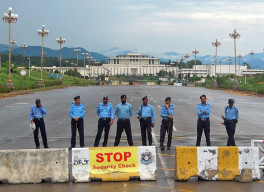

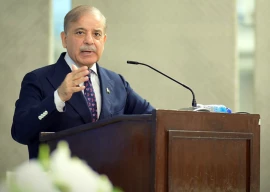
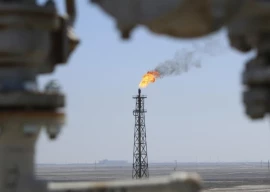
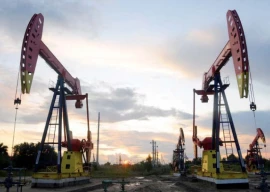
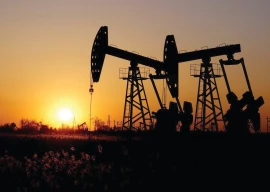






COMMENTS
Comments are moderated and generally will be posted if they are on-topic and not abusive.
For more information, please see our Comments FAQ